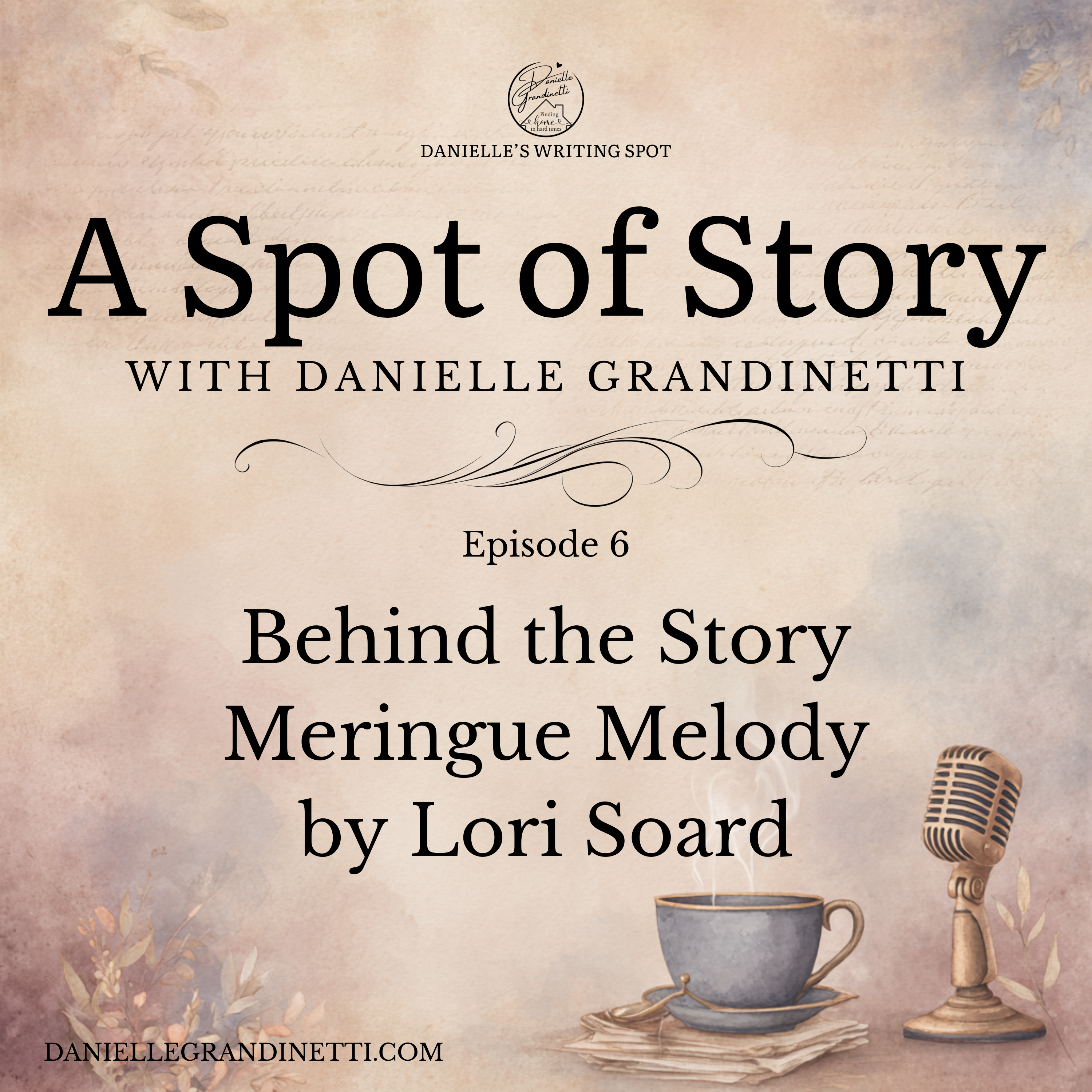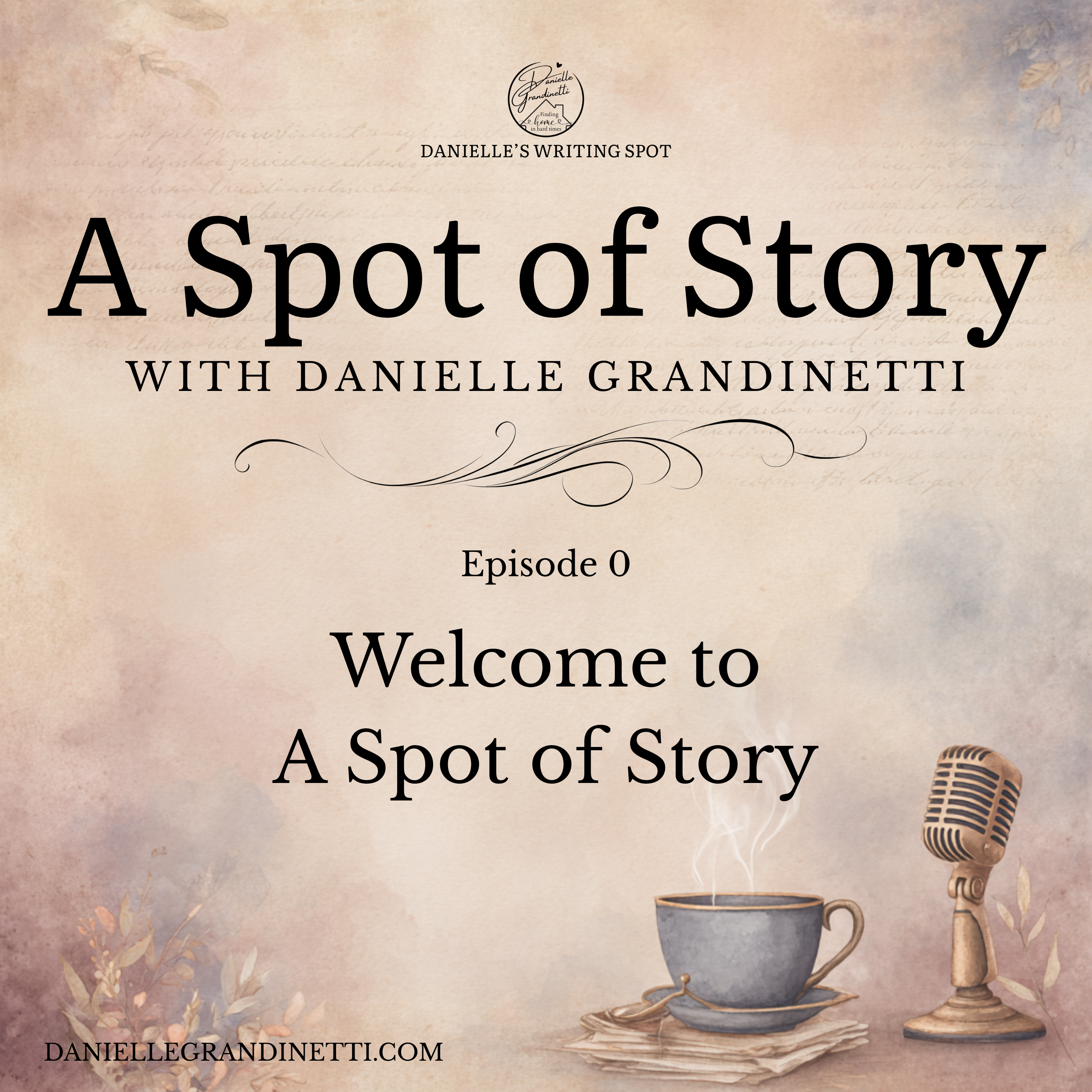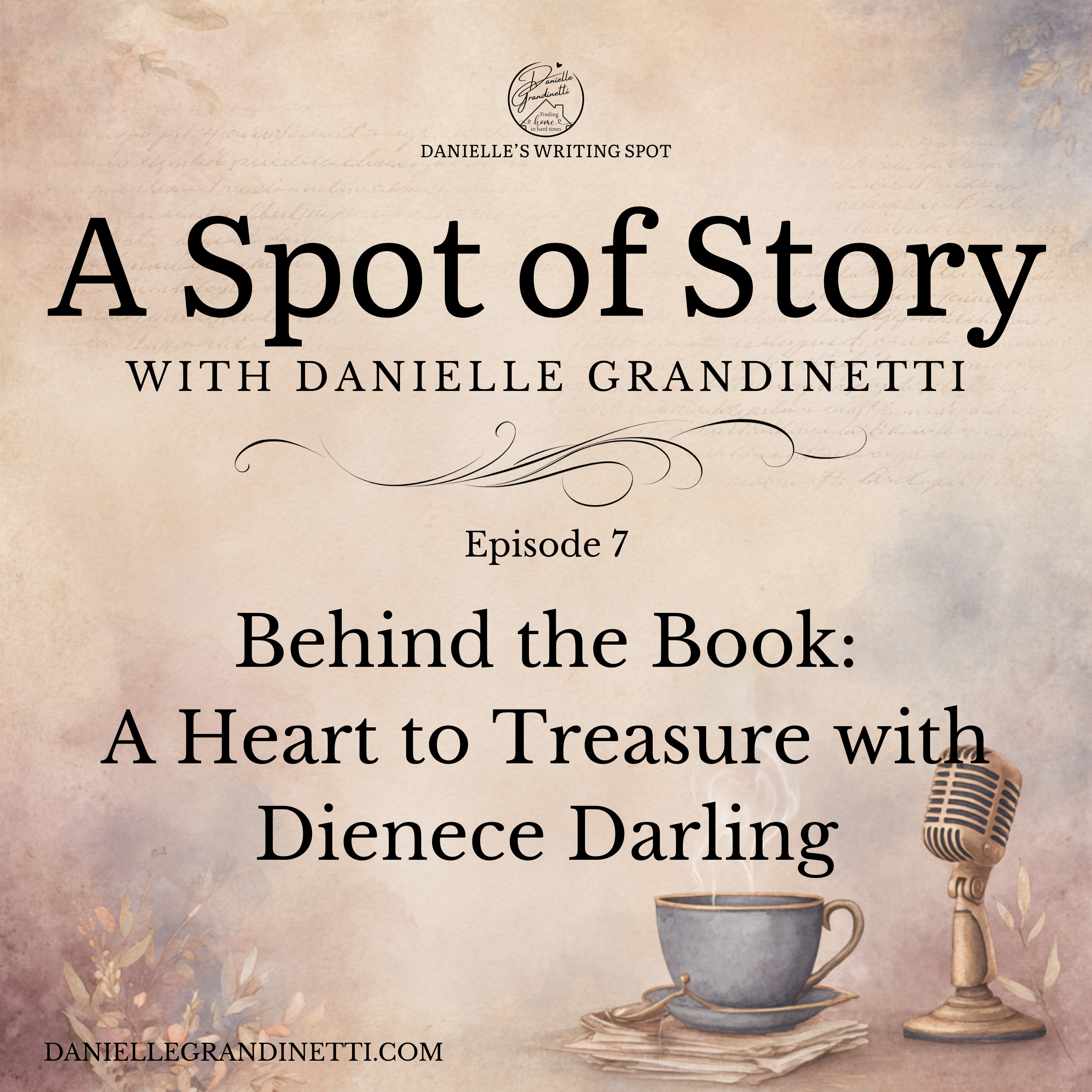Episode Transcript
Danielle Grandinetti: [00:00:00] Welcome to A Spot of Story with Danielle Grandinetti. Cozy up with your favorite beverage as we chat about sweet romance, thrilling suspense, and fascinating history. Perhaps you'll find your next read in one of these stories.
On this episode of A Spot of Story Echoes of History, we're stepping back into the 1930s to explore a relatively difficult topic: the history of the beginnings of Germany's fall from democracy. Why are we diving into this today? Because it is a specific moment in history that I address in my historical romance The Recluse’s Vindication.
In The Recluse’s Vindication, the Loch Ness Monster isn't the only recluse [00:01:00] seeking a Scottish haven. In Midville, Scotland, in 1933, falsely accused of murder 16 years ago, American cowboy Benjamin Ford has chosen to hide out in the Scottish Highlands, reclusive and not afraid to die.
He rescues children out of an increasingly dangerous Germany when his childhood best friend appears at his door. He's not the boy she remembers. Eleanor Finch’s life ended 16 years ago in one horrible day—she lost her dreams, her reputation, and her heart. However, she never gives up the hope of finding her friend.
So when she learns of Ben's whereabouts, she leaves all that is familiar to convince him to return home. But Eleanor isn't the only person searching for Ben. Hunters follow her trail.
The Recluse’s Vindication is part of the Our House on Heather Wynd multi-author, multi-genre series. This is the second season of the Our House books. Last year, [00:02:00] a collection of U.S. authors got together to create Our House on Sycamore Street, which was set in England.
My installment in that particular series was The Italian Musician’s Sanctuary, and in that story I told of a young woman who had to escape Mussolini's Blackshirts from Italy and was smuggled into England. Fast forward to this year, and as I was debating how to craft this year's story, I wanted to continue this thread of resistance that was building.
When we think of World War II, our minds often go to when America entered the war, which was 1941 with Pearl Harbor. But we forget that Europe had already been in the war for several years. Official war began, I believe, in the late 1930s. However, war didn't start on [00:03:00] the drop of a dime.
War had been building and building for years. Some could even argue that the First World War never really ended—that the struggles of the First World War just died down to a simmer that escalated into an even worse war in World War II. 1933 was a turning point in this particular situation, and by setting my story there, it allowed me to begin to dive into the history.
The Italian Musician’s Sanctuary dealt with Mussolini's Blackshirts. He was already “purifying” the Italian race and setting up many of the programs that Germany then mirrored. However, in Mussolini's [00:04:00] Italy, he had no interest in creating world domination. That is where he and Hitler disagreed, even though they were allies at the time.
For Benjamin Ford, he has a difficult past, from the day he left his home in America to becoming a naval officer to hiding out in the Scottish Highlands. He's not hiding quietly as much as he's staying away from the visible eye. He's using that, and he's basically selling his soul to be able to protect the innocent. And the innocent in this case are the children.
In 1933 Germany, the anti-Jewish and anti–non-Aryan sentiment really became full-fledged action. The German Jews were constant victims of this oppression. [00:05:00] But it really came to a coordinated head when, in April—April 1st, 1933—they announced a boycott of Jewish products, Jewish businesses, and basically worked to run Jewish business owners and creators out of business.
Because of that, in my story, there is a Jewish business owner facing this situation, and he's a friend of Ben's. He also has a little daughter named Amali—a little Jewish girl. But here's the other side of this [00:06:00] equation.
Also in April of 1933, the Law Against Overcrowding in Schools and Universities limited the number of Jewish students who could attend public school. This little girl, and the fact that her father was in business, combined to create a very dangerous situation for that family—this fictional family in my story.
So Ben snuck into Germany to help rescue this family. It didn’t help that Amali's father actively spoke against the regime in Germany at the time. Well, Amali’s parents did not survive, but Ben managed to get her out alive. And that is the start of the story, as Ben is recognizing the stain on his soul that his actions have taken.
And yet how can he not [00:07:00] sell his soul to rescue children like Amali, who are caught between these vicious powers trying to oppress the marginalized in Germany—whether Jews, or as later became the case in 1933 when they began the Law for the Prevention of Offspring with Hereditary Diseases. Unfortunately, that also included people with physical and mental disabilities, mental illness, those of Roma descent, and Black people.
I think the thing that I marveled at most as I wrote my story and recognized that it began in 1933 was that it was 10 years before America entered the war, and yet the damage was already being done, already coming into play. In Germany, in Italy, in these countries that became the Axis Powers just a short while later.
Deep stuff for history. But I think this is the part that I love about history: if we don't study it, [00:08:00] we can't learn from our mistakes. Being able to weave some of these facts into a historical romance creates the depth that our hero and heroine have to face. What do they do with these real-life situations? With this child who has been rescued out of Germany, what do they do?
What is God requiring of them? How should they act? How could they act? I try to put those questions into ones that we [00:09:00] as modern-day people can understand. At least that's my hope.
So that is a bit of the history behind The Recluse’s Vindication. If you want to learn more about where I found these resources or get timelines, I include links in my show notes.
I want to leave you with one last thought. As I was writing this book, I like to put a verse at the beginning of each of my books. It's usually a touchpoint, a theme that shows up throughout my story. However, with this particular one, nothing jumped out at me.
There was no quite right verse. As it was going to print, I wondered: is this going to be the first book I’ve ever written that doesn’t have a verse? But of all books—one about standing up for justice and fighting for the marginalized—that is what the gospel [00:10:00] and what Jesus is all about.
So what do I do? Well, I asked some friends to pray, and out of that a verse began coming to mind. It was about the children, and it was Jesus' words: Let the little children come unto me. I thought, you know what? That is what my story is about. It is about this hero and heroine and what they do to protect children who are in danger because of the powerful.
So I went to the Bible app I use to find the version that I can use with copyright issues, and when I pulled it up, there on the front page, the verse of the day was the very verse I was going to look up. That verse is Matthew 19:14, and here it is in the King James Version:
But Jesus said, Suffer little children, and forbid them not, to come unto me: for of such is the kingdom of heaven.
[00:11:00] Thank you for tuning in for this journey into the past. Like I mentioned, you can find additional resources, show notes, and a link to the guest post where I talked more about how choosing that verse came to be.
Thank you for listening to A Spot of Story with Danielle Grandinetti. We hope you enjoyed today's conversation. Let us know by leaving a comment below and be sure to subscribe so you don't miss an episode. Discover more information about today's book by visiting A Spot of Story online at daniellegrandinetti.com/podcast.
Happy reading.





